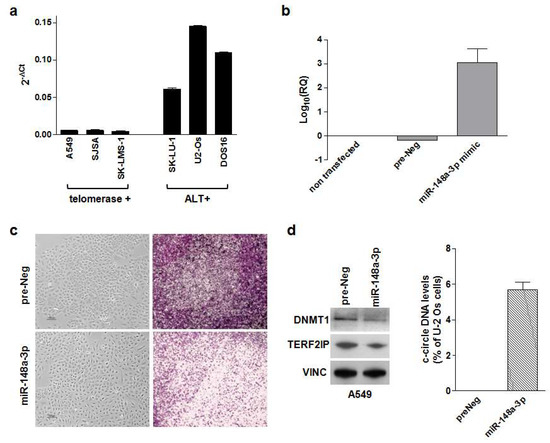
Cancers, Vol. 12, Pages 949: The Role of Alternative Lengthening of Telomeres Mechanism in Cancer: Translational and Therapeutic Implications
Cancers doi: 10.3390/cancers12040949
Authors:
Marta Recagni
Joanna Bidzinska
Nadia Zaffaroni
Marco Folini
Telomere maintenance mechanisms (i.e., telomerase activity (TA) and the alternative lengthening of telomere (ALT) mechanism) contribute to tumorigenesis by providing unlimited proliferative capacity to cancer cells. Although the role of either telomere maintenance mechanisms seems to be equivalent in providing a limitless proliferative ability to tumor cells, the contribution of TA and ALT to the clinical outcome of patients may differ prominently. In addition, several strategies have been developed to interfere with TA in cancer, including Imetelstat that has been the first telomerase inhibitor tested in clinical trials. Conversely, the limited information available on the molecular underpinnings of ALT has hindered thus far the development of genuine ALT-targeting agents. Moreover, whether anti-telomerase therapies may be hampered or not by possible adaptive responses is still debatable. Nonetheless, it is plausible hypothesizing that treatment with telomerase inhibitors may exert selective pressure for the emergence of cancer cells that become resistant to treatment by activating the ALT mechanism. This notion, together with the evidence that both telomere maintenance mechanisms may coexist within the same tumor and may distinctly impinge on patients’ outcomes, suggests that ALT may exert an unexpected role in tumor biology that still needs to be fully elucidated.

Δεν υπάρχουν σχόλια:
Δημοσίευση σχολίου